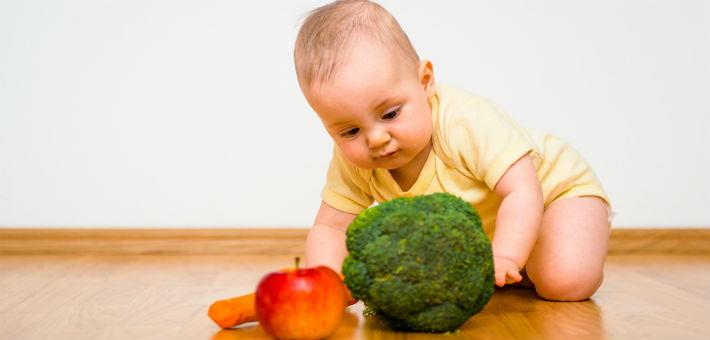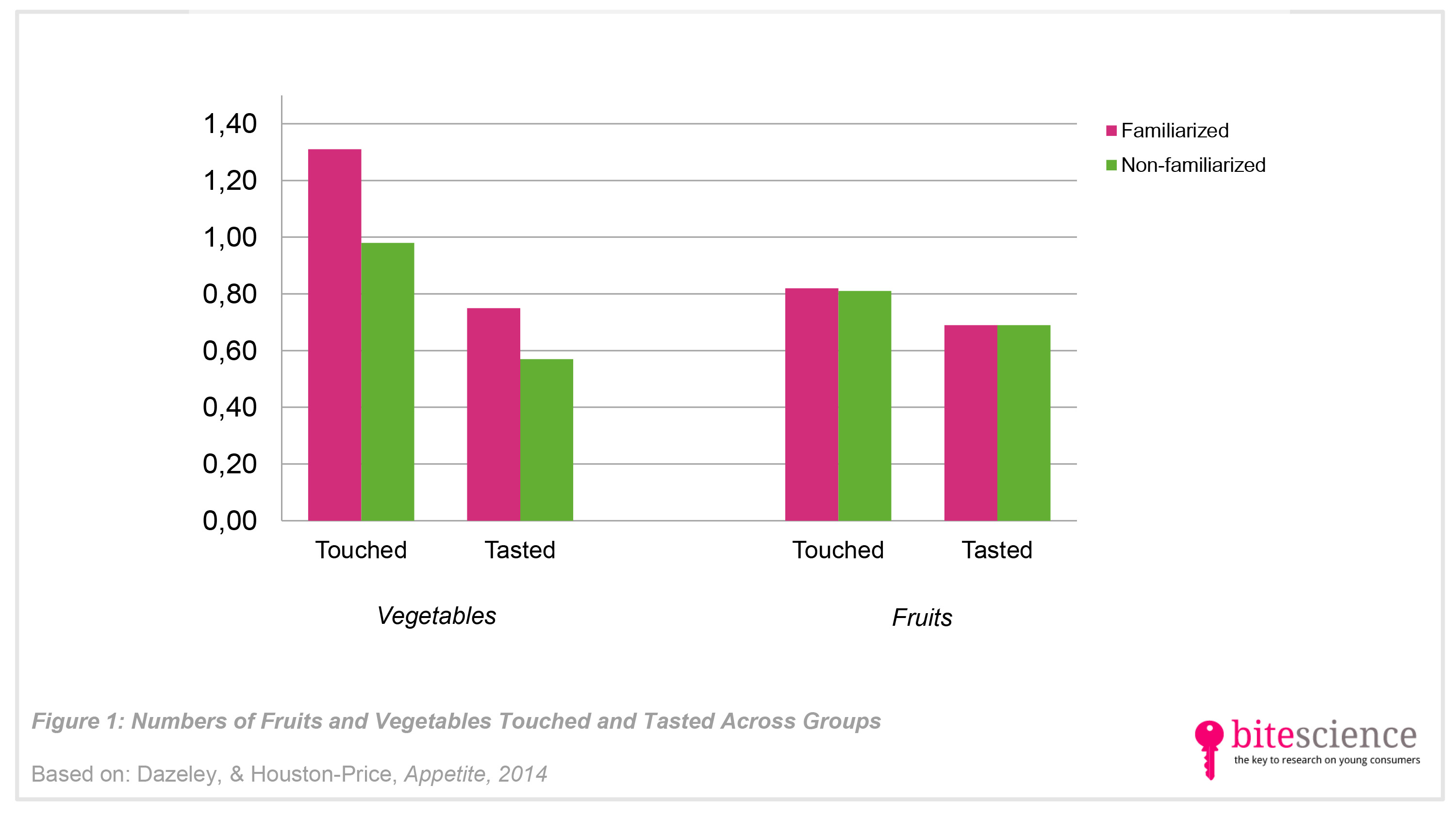
Look, Listen, Feel, Smell -- How Sensory Playtime Stimulates Toddlers to Try New Fruits and Vegetables
A study in Appetite reports how toddlers’ willingness to try uncommon fruits and vegetables, such as rhubarb and pomegranates, can be increased by play tasks. It turns out that toddlers who are familiarized with unusual fruits and veggies through sensory play tasks in which they participate in listening, smelling, feeling and looking activities, are more willing to touch and taste these foods when presented to them.
Take aways
- Food-related sensory games that familiarize toddlers (aged 12 to 36 months) with uncommon fruits and vegetables - through listening, smelling, feeling and looking - increase their willingness to try these foods.
- Specifically, toddlers will touch and eat more unusual vegetables when they are familiarized with them.
- They are also more likely to touch those greens before they approach other ones.
- In the case of uncommon fruits, when toddlers are familiarized with them they are also more willing to taste those before they taste other unusual fruits they have never been exposed to.
- This highlights the need for health practitioners to implement sensory games with unfamiliar fruits and vegetables in their health interventions, since these play activities increase toddlers’ willingness to try unusual healthy foods.
Study information
The question?
Do food-related sensory games with unfamiliar fruits and vegetables increase toddlers’ willingness to try these foods?
Who?
92 1- and 2-year-olds (range: 12-36 months old)
Where?
United Kingdom, Berkshire
How?
The toddlers were divided into two groups. In the experimental group, children completed food-related activities during their nursery classes for four weeks in a row. These activities were based on their senses: looking (e.g., drawing pictures of the foods), listening (e.g., listening to the noise of the foods snapped or squeezed), feeling (e.g., feeling the texture of the foods) and smelling activities(e.g., smelling the cooked foods). The toddlers in this group were also exposed to different sets of unfamiliar fruits and vegetables: either sweet potato, green pepper, rhubarb and dried figs or butternut squash, broad beans, dried prunes and pomegranates. In the non-experimental group, children did not take part in any sensory activity.
In order to test their willingness to try the unfamiliar foods, a mealtime taste test was conducted with toddlers from both the experimental and the non-experimental group. The children were offered four plates of food, one at a time. The plate was removed when all the food was eaten, or after two minutes if the food was rejected.
Facts and findings
- The food-related sensory games increased the number of uncommon foods that the toddlers’ touched and tasted.
- That is, those who were familiarized with unusual vegetables through their playtime activities, touched and tasted more of those than other unusual veggies they were never exposed to. However, this was not the case for fruits, see Figure 1.
- The food-related sensory games also affected the order in which toddlers’ approached the foods:
- Those who were familiarized with the unusual vegetables, touched those veggies before they touched other non-familiarized vegetables.
- Those who were familiarized with unusual fruits, tasted these fruits before they tasted other unusual fruits they were never familiarized with.
- Thus, although the food-related activities especially seemed to benefit the number of vegetables toddlers touched and tasted, it did positively affect the order in which toddlers tasted the fruits they were familiarized with.
- Fun fact: children in the non-experimental group felt more naturally attracted to butternut squash, broad beans, dried prunes and pomegranates, since they touched and tasted these foods before they approached sweet potato, green pepper, rhubarb and dried figs.
